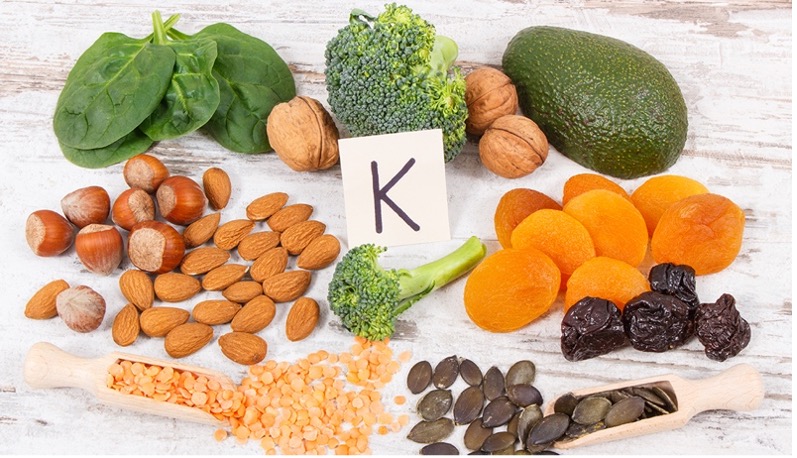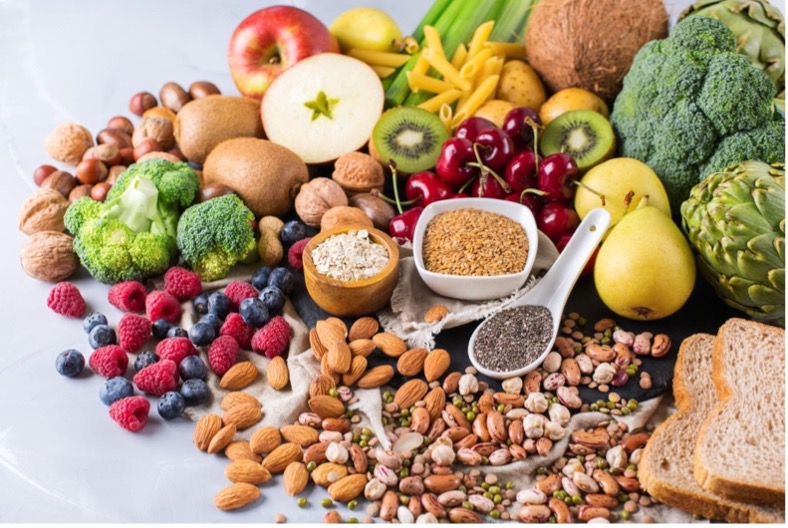Aging is an inevitable biological process that involves changes in different body systems, increasing the risk of chronic diseases such as atherosclerosis, osteoporosis, insulin resistance, and neurodegenerative diseases. In this context, vitamin K has emerged as a key nutrient in preventing and slowing down these processes.
“Although it is often associated solely with blood clotting, recent research has shown that vitamin K plays a fundamental role in cardiovascular, bone, metabolic, and brain health, making it a pillar of anti-aging medicine. Once again, nutrition plays a crucial role in prevention and overall health!”
Estefanía Álvarez – Neolife Nutrition Unit
Types of Vitamin K and Their Differences
There are three main forms of vitamin K, each with specific functions in the body.
- Vitamin K1 (Phylloquinone or Phytomenadione): It is primarily found in leafy green vegetables such as spinach, kale, and broccoli. Its main function is the activation of clotting factors in the liver, preventing bleeding.
- Vitamin K2 (Menaquinone, MK): It is found in fermented foods, animal products, and is produced in small amounts by the gut microbiota. It plays a crucial role in regulating vascular calcification, bone health, and insulin metabolism.
- Vitamin K3 (Menadione): It is a synthetic form used in some supplements and medical treatments, but its use in humans is limited due to potential adverse effects.

Health and Anti-Aging Benefits of Vitamin K
1. Protection Against Cardiovascular Diseases
Aging is associated with increased arterial stiffness due to the accumulation of calcium in the arteries. Vitamin K2 plays a fundamental role in preventing this phenomenon by activating Matrix Gla Protein (MGP), a protein that inhibits vascular calcification.
Various studies have shown that higher vitamin K2 intake is associated with a lower risk of cardiovascular disease, including heart attacks and strokes.

2. Bone Strengthening and Osteoporosis Prevention
As we age, bone density decreases, increasing the risk of osteoporosis and fractures. Vitamin K activates osteocalcin, a protein that enables proper bone mineralization by binding calcium to the bones.
Studies have shown that people with optimal vitamin K levels have higher bone density and a lower risk of fractures, especially in postmenopausal women.
3. Improved Insulin Sensitivity and Diabetes Prevention
Insulin resistance is a key factor in metabolic aging and the development of type 2 diabetes. Vitamin K has been found to play an important role in glucose metabolism by stimulating active osteocalcin, a bone protein that improves insulin sensitivity.
A study published in Diabetes Care found that higher vitamin K2 intake was associated with a lower incidence of type 2 diabetes in older adults.
4. Protection Against Neurodegenerative Diseases
The brain is one of the most vulnerable organs to aging. Vitamin K is essential for the production of sphingolipids, key compounds in the structure and function of neuronal cell membranes.
Low vitamin K levels have been linked to an increased risk of cognitive decline and neurodegenerative diseases such as Alzheimer’s and Parkinson’s.
Additionally, its anti-inflammatory action may help reduce oxidative stress and protect the brain from aging-related damage.
5. Reduction of Inflammation and Oxidative Stress
Aging is associated with a state of chronic low-grade inflammation, known as inflammaging, which contributes to various chronic diseases.
The vitamin K Has anti-inflammatory properties that reduce the production of pro-inflammatory cytokines, helping slow down cellular aging and prevent chronic inflammatory diseases.ropiedades antiinflamatorias que reducen la producción de citocinas proinflamatorias, ayudando a ralentizar el proceso de cellular aging and prevent diseasesprevenir enfermedades chronic inflammatory
Sources of Vitamin K and Strategies to Optimize IntakeFuentes de vitamina K y estrategias para pptimizar su ingesta
To maintain adequate vitamin K levels, it is essential to include foods rich in its different forms in the diet:
- Vitamin K1: Spinach, kale, lettuce, broccoli, Brussels sprouts.
- Vitamin K2: natto (fermented soybeans), aged cheeses, egg yolk, liver, beef.

The gut microbiota also produces vitamin K2, but its bioavailability is limited, as many of its molecules remain associated with bacterial cell membranes.
To improve vitamin K absorption, it is advisable to consume it with healthy fat sources, as it is a fat-soluble vitamin.
Supplementation and Evaluation of Vitamin K Levels
Dietary recommendations establish an adequate intake of 70 µg of vitamin K1 per day, but there are no specific values for vitamin K2, despite its importance for cardiovascular and bone health.
To assess vitamin K levels in the body, the PIVKA-II marker (protein induced by vitamin K absence) is used, allowing for the detection of deficiencies and measurement of the vitamin’s biological activity in the body.
In certain cases, especially in individuals at risk of osteoporosis, cardiovascular diseases, or insulin resistance, supplementation with vitamin K2 (MK-7) may be beneficial, always under medical supervision.
It is important to note that those taking coumarin-based anticoagulants (such as warfarin) should consult their doctor before modifying their vitamin K intake, as it may interfere with the medication.
Thus, vitamin K is an essential nutrient that goes far beyond blood clotting. Its impact on cardiovascular, bone, metabolic, and neurological health makes it a key component in healthy longevity strategies.
Ensuring an adequate intake of vitamin K through diet and, in some cases, supplementation can be an effective strategy to slow aging and improve quality of life in adulthood.
